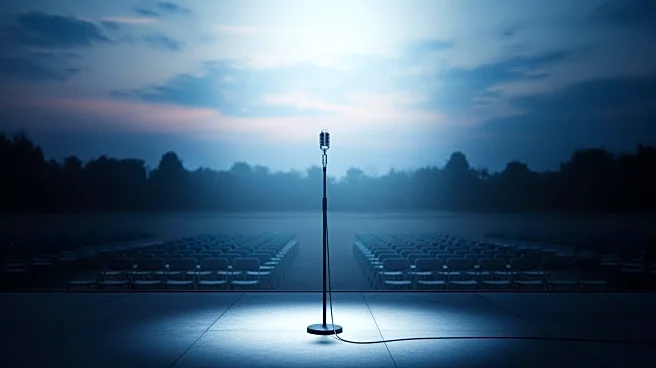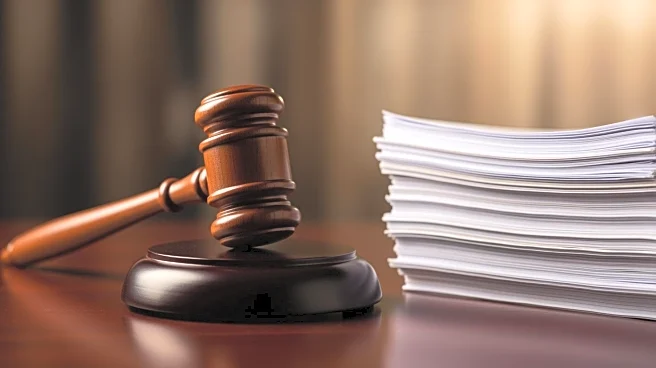What's Happening?
President Trump has announced plans to implement a federal 'surge' in several U.S. cities to combat rising crime rates. During a rare Oval Office event, Trump discussed the possibility of deploying the National Guard to cities like San Francisco as part
of this initiative. The move is part of a broader strategy to address crime and enhance public safety in urban areas experiencing significant challenges. The announcement has sparked discussions about federal intervention in local law enforcement and the balance between national and local governance.
Why It's Important?
The proposed federal 'surge' could have significant implications for urban communities and local law enforcement agencies. It raises questions about the role of federal government in addressing crime and the potential impact on civil liberties and community relations. The initiative may lead to increased federal presence in cities, affecting local governance and law enforcement practices. Stakeholders, including city officials, law enforcement agencies, and community groups, are likely to have varied responses, with some supporting the move for enhanced security and others expressing concerns about federal overreach.
What's Next?
As President Trump considers deploying the National Guard, cities targeted for the 'surge' may begin preparing for increased federal involvement. This could involve coordination between federal and local law enforcement agencies and discussions on the scope and nature of the intervention. Political leaders and community organizations may engage in debates over the necessity and implications of the federal 'surge,' potentially influencing public policy and law enforcement strategies.
Beyond the Headlines
The initiative highlights broader issues of crime, governance, and federalism in the United States. It underscores the challenges of balancing national security concerns with local autonomy and civil rights. The move could also influence public perceptions of crime and safety, shaping future policy discussions and electoral debates.
















